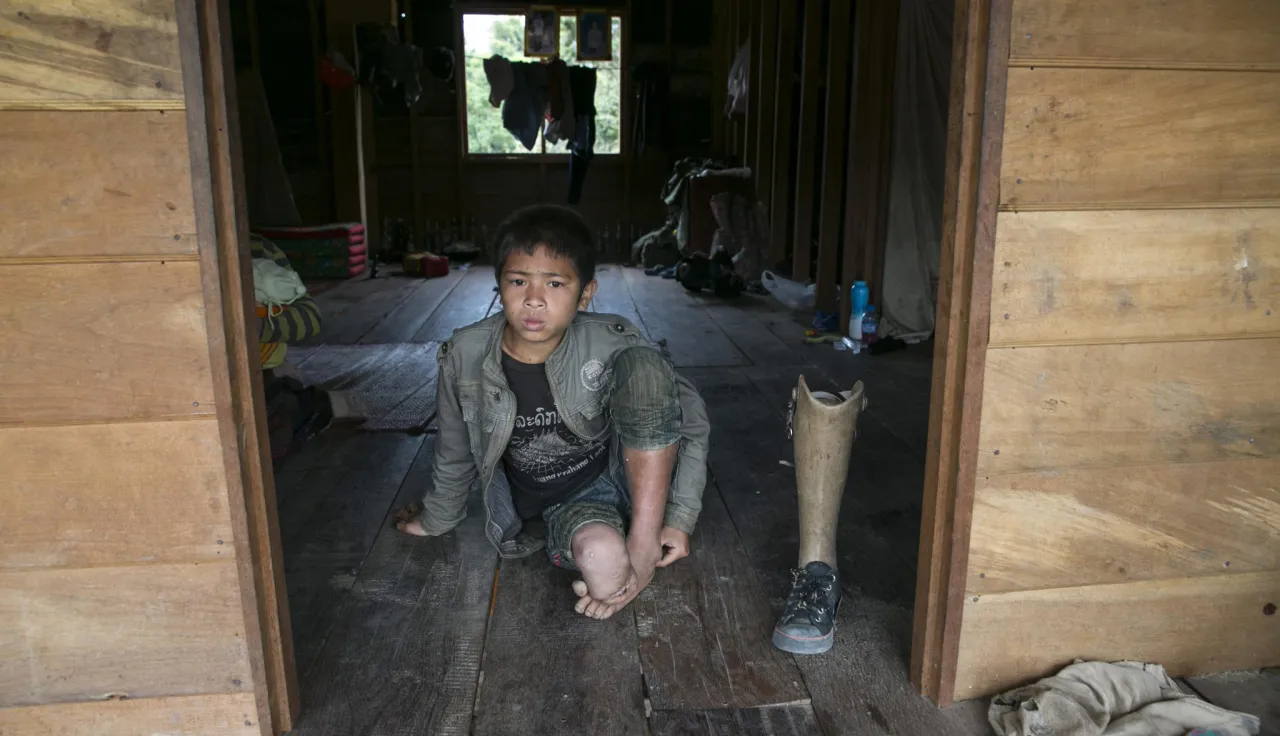Laos: ASEAN discusses strategies to strengthen assistance for victims of unexploded ordnance

Luang Prabang (ICRC) – Twenty-four experts from Cambodia, Laos, Myanmar and Viet Nam gathered in Luang Prabang today to discuss national policies and best practices that could benefit people injured in accidents involving unexploded ordnance and improve their lives, as well as prevent new victims in the future. The one-day workshop was organized by the Ministry of Labour and Social Welfare in cooperation with the International Committee of the Red Cross (ICRC) and the Association of Southeast Asian Nations (ASEAN).
"As our leaders adopted the ASEAN Declaration on Strengthening Social Protection at the 23rd ASEAN Summit last year, we are reminded that social protection is the right of everybody, including victims of unexploded ordnance, whose livelihood may be compromised owing to disabilities or other impediments," said Chomyaeng Phengthongsawat, deputy director-general of the Planning and Cooperation Department of the Ministry of Labour and Social Welfare. "Cambodia, Laos, Myanmar and Viet Nam remain committed to provide social assistance to the victims through various ongoing programmes and strategies. Facing similar challenges, we could learn from each other and collaborate closely in responding to the needs of victims of unexploded ordnance in our respective countries."
Participants met to share experiences in delivering assistance to victims, such as by helping them obtain access to special schools and the job market, or by providing vocational training, rehabilitation, mine-clearance activities and community awareness programmes. They also identified the challenges involved in providing comprehensive assistance for victims, especially those living in remote areas. The workshop was a regional activity planned under the ASEAN Strategic Framework for Social Welfare and Development 2011-2015.
Laos alone is estimated to have had over 50,000 landmine and explosive remnant of war casualties up to the end of 2012, according to the Landmine and Cluster Munition Monitor, the vast majority of victims being civilians. Unexploded ordnance also poses a serious threat to future generations. "Unexploded ordnance has a devastating effect on societies, continuing to maim and kill civilians long after armed conflicts have ended," said Beat Schweizer, head of the ICRC’s regional delegation in Bangkok. "The long-term implications can deprive people of economic activities, health care and education."
The ICRC has been working since 1960 in South-East Asia, where it supports physical rehabilitation programmes for victims of unexploded ordnance and other remnants of war in Cambodia, Laos, Myanmar and Viet Nam. In June, it provided trauma-care and first-aid training for health-care personnel working with ordnance disposal units in Laos.
For further information, please contact:
Jean-Pascal Moret, ICRC Bangkok, tel: +66 (0) 950 12 70



